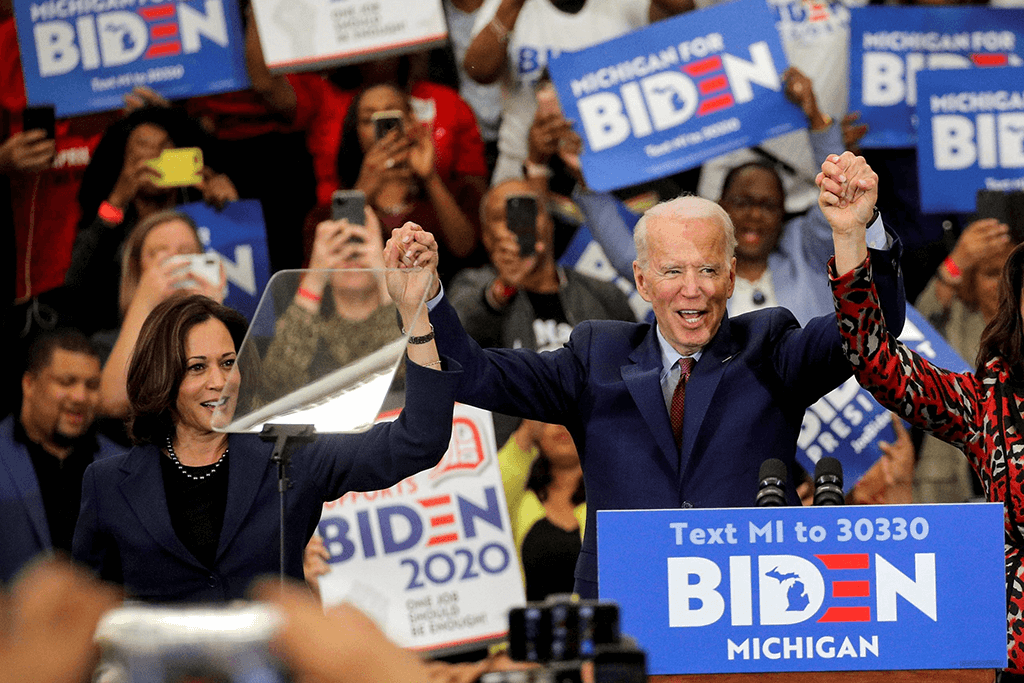In January 2021, Joe Biden will be sworn-in as the 46th president of the United States of America, a country where almost half of the voters are committed to defending white supremacy. A country where 47% of voters believe in QAnon conspiracy theories and take Donald Trump’s misinformation as gospel. A country where police commit extrajudicial murders with impunity. A country ravaged by a pandemic. A country where chasms between the poor and wealthy have grown substantially wider, a nation desperately divided and flawed.
Paul Krugman, a noble laureate economist, writes in the New York Times; “If we were looking at a foreign country with America’s level of political dysfunction, we would probably consider it on the edge of becoming a failed state — that is, a state whose government is no longer able to exert effective control.”
Will President-elect Biden repudiate the “America First” platform on which Donald Trump won the White House in 2016? Most likely, he will. Trump’s foreign policy was a striking departure in many ways from his predecessors, and while many outside observers expected this 2020 election to reverse that, the deeply divided American electorate has not made that clear cut choice. Can Biden change the hyper-nationalist and unilateralist mindset that undergirds it?
The U.S. may return to multilateralism and the global fold to combat climate change, pandemics, and other transnational threats. The Biden administration can potentially re-orient America’s foreign policy. After four years of non-conventional and disruptive rule, America may return to its historical role on the world stage. Joe Biden’s administration may reassure foreign leaders that there is light at the end of the tunnel. To do that, his administration will have to drop the America first mantra, rhetoric that resonates with rural America. An uphill task, indeed! Sceptical of America’s willingness to provide security, open markets, and other global public goods, capitals worldwide have already begun hedging their bets and pursuing strategic autonomy. They may second guess a country that has proven so capricious. After all, Trumpism is likely to remain a potent political force, shaping Republican attitudes around an isolationist and hyper-nationalist foreign policy for a generation.

From the inadequacy of the health care system to the cruelty of immigration policies, from entrenched racial inequities to citizens’ economic vulnerabilities, Donald Trump leaves behind a big mess.
Biden has pledged himself to big thinking and bold action in tackling these challenges. He has committed to take immediate steps to renew democracy and alliances, protect the economic future, and once more place America at the head of the table, leading the world to address the most urgent global challenges.
In the first 90 days, the Biden administration will focus on two major issues: firstly the pandemic and its economic fallout, and secondly racial inequality and reforming the criminal justice system to eliminate inequitable disparities.
In several campaign speeches, Biden said he would immediately end the horrific practice of separating families at the border and holding immigrant children in for-profit prisons. Instead, he has promised to improve screening procedures at legal ports of entry and make smart investments in border technology, in cooperation with Canada and Mexico.
He will offer Temporary Protected Status to vulnerable populations who cannot find safety in countries ripped apart by violence or disaster, including Venezuelans and Haitians, terminate the travel ban against people from Muslim-majority countries, reverse Trump’s cruel asylum policies and raise targets for refugee admissions to a level commensurate with America’s responsibility and unprecedented global need.
During his first year in office, President-elect Biden will bring together the world’s democracies to honestly confront the challenge of backsliding and forge a common agenda to address threats to shared values. He has committed to organising and hosting a Global Summit for Democracy to renew the nation’s spirit and shared purpose worldwide.

The Biden administration, we are assured, will rejoin the Paris Climate Accord on day one and lead a major diplomatic push to raise countries’ climate targets. Biden will convene a climate world summit to directly engage the leaders of the world’s major carbon-emitting nations to persuade them to join the United States in making more ambitious national pledges, above and beyond the commitments they have already made and lock in enforceable obligations that will reduce emissions in global shipping and aviation.
If Iran returns to compliance with the historic nuclear deal, the Biden administration will gladly re-enter the agreement and work closely with China to denuclearise North Korea.
Biden has also committed to pursuing an extension of the New START treaty, an anchor of strategic stability between the United States and Russia, and to use that as a foundation for new arms control arrangements.
His record tells us that he is not a hawk. Biden will try to end wars in Afghanistan and the Middle East. As he has long argued, Biden will bring the vast majority of troops home from Afghanistan and narrowly focus on Al-Qaeda and ISIS. And on the campaign trail, he also committed to ending support for the Saudi-led war in Yemen. Staying entrenched in unwinnable conflicts only drains the capacity to lead on issues that require attention, and hinders the rebuilding of other instruments of American power.
The Biden administration may return to drone attacks and continue to pander to New Dehli to counter China’s influence. Since the George W. Bush administration, the United States has recognised India’s potential as a natural balancer to China. It’s been a proponent of the U.S.-India relationship due to India’s strategic location and potential as a market.
But the commitments he has made on the campaign trail will not be easy to implement. Trump’s message of fear and resentment resonated with tens of millions of Americans. Trumpism will not magically disappear. If anything, its adherents will very likely find renewed energy and purpose in marshalling a new resistance movement committed to undermining and delegitimising the incoming administration.
The Biden administration’s ability to execute depends on two Senate seats with run-off elections in Georgia, in January 2021. We remain cautiously optimistic.

Ibrahim Sajid Malick
Editor, Narratives



